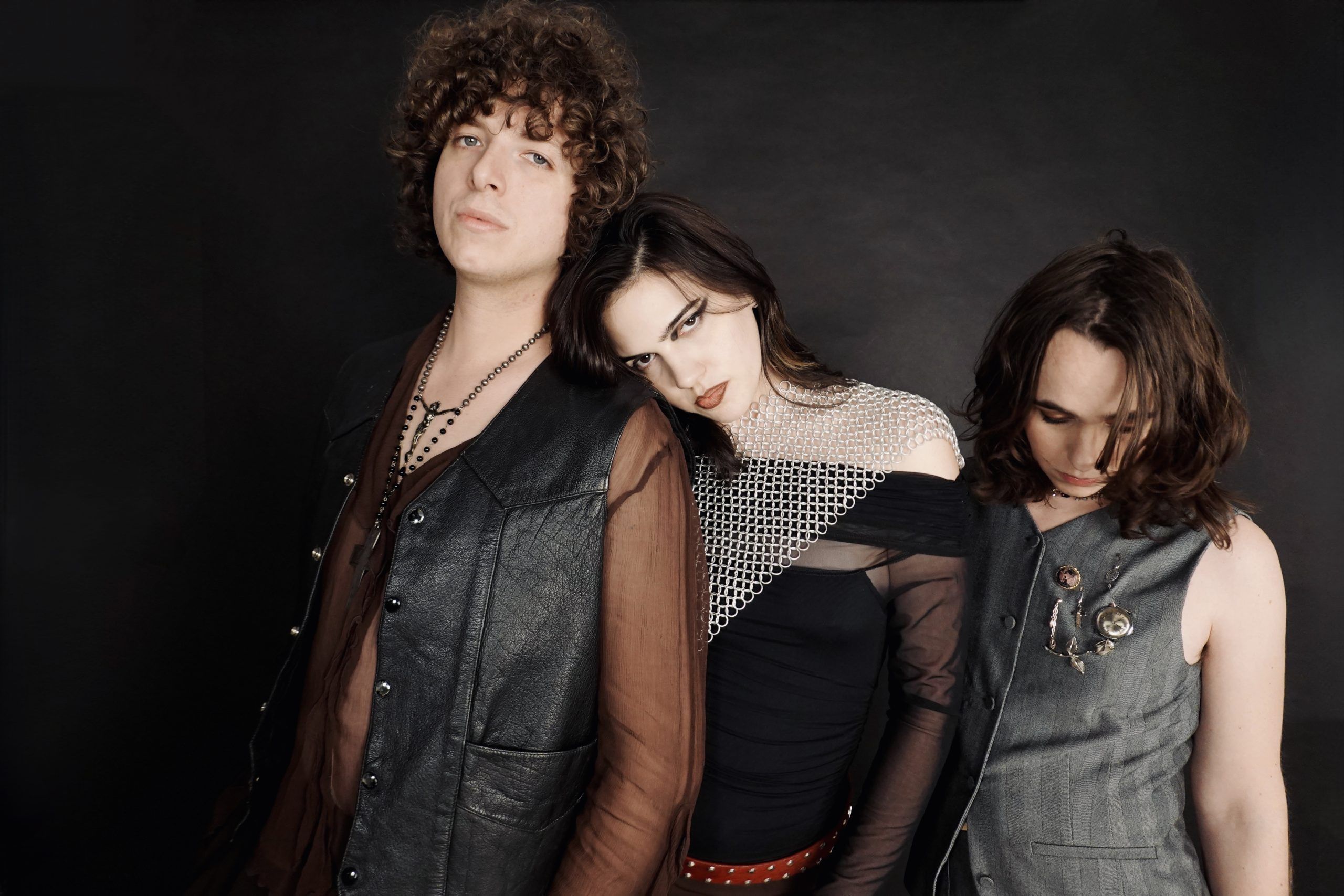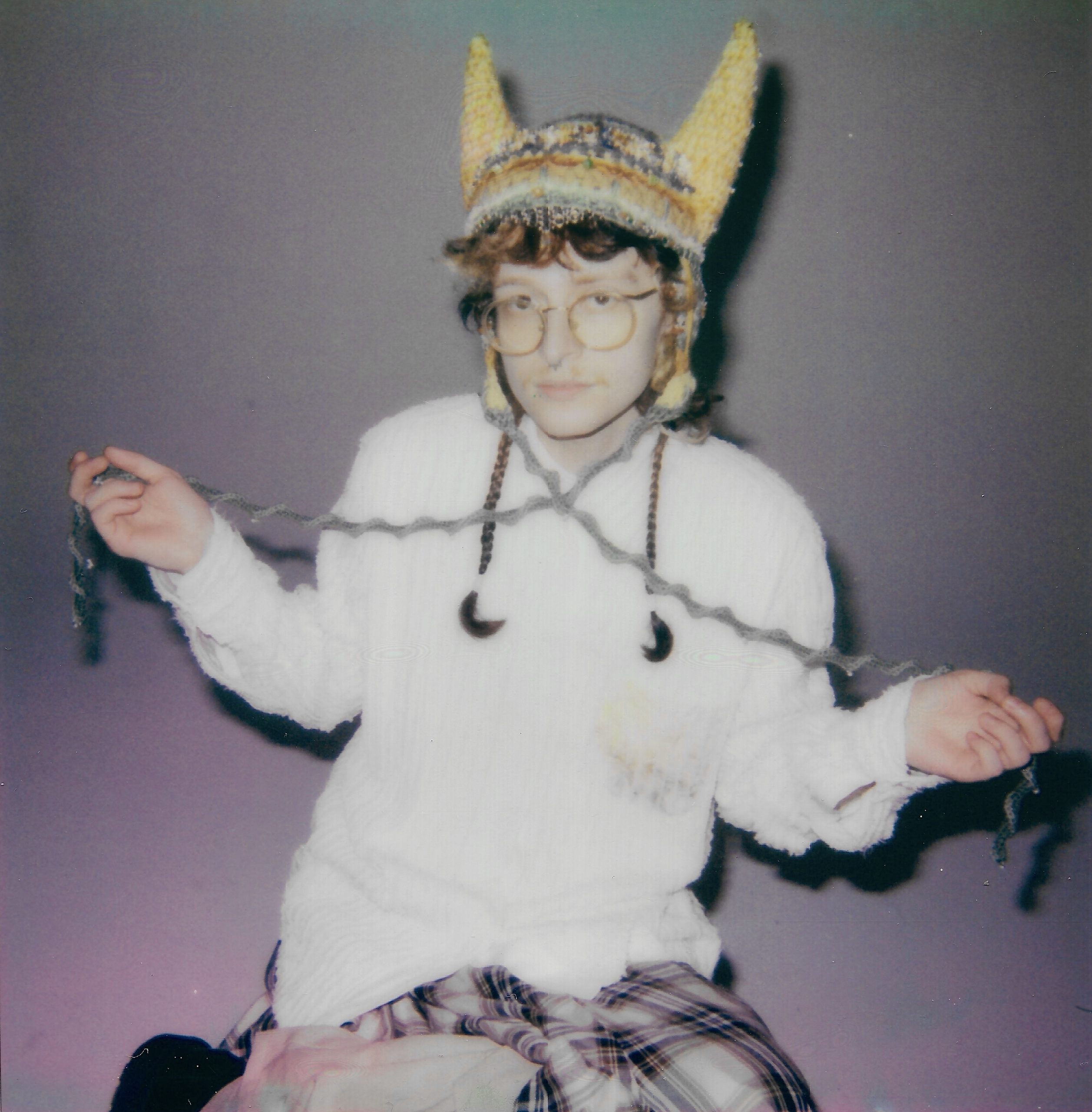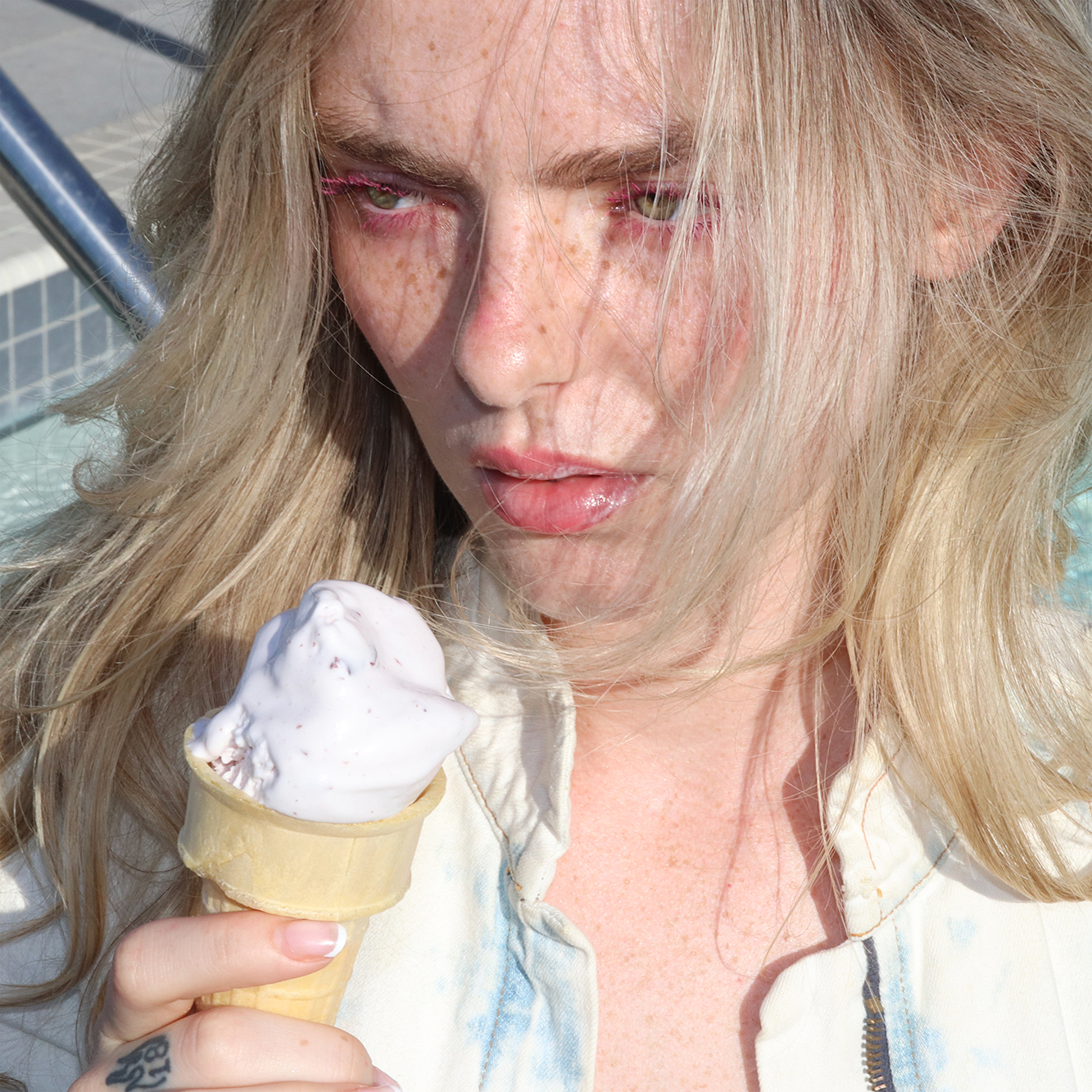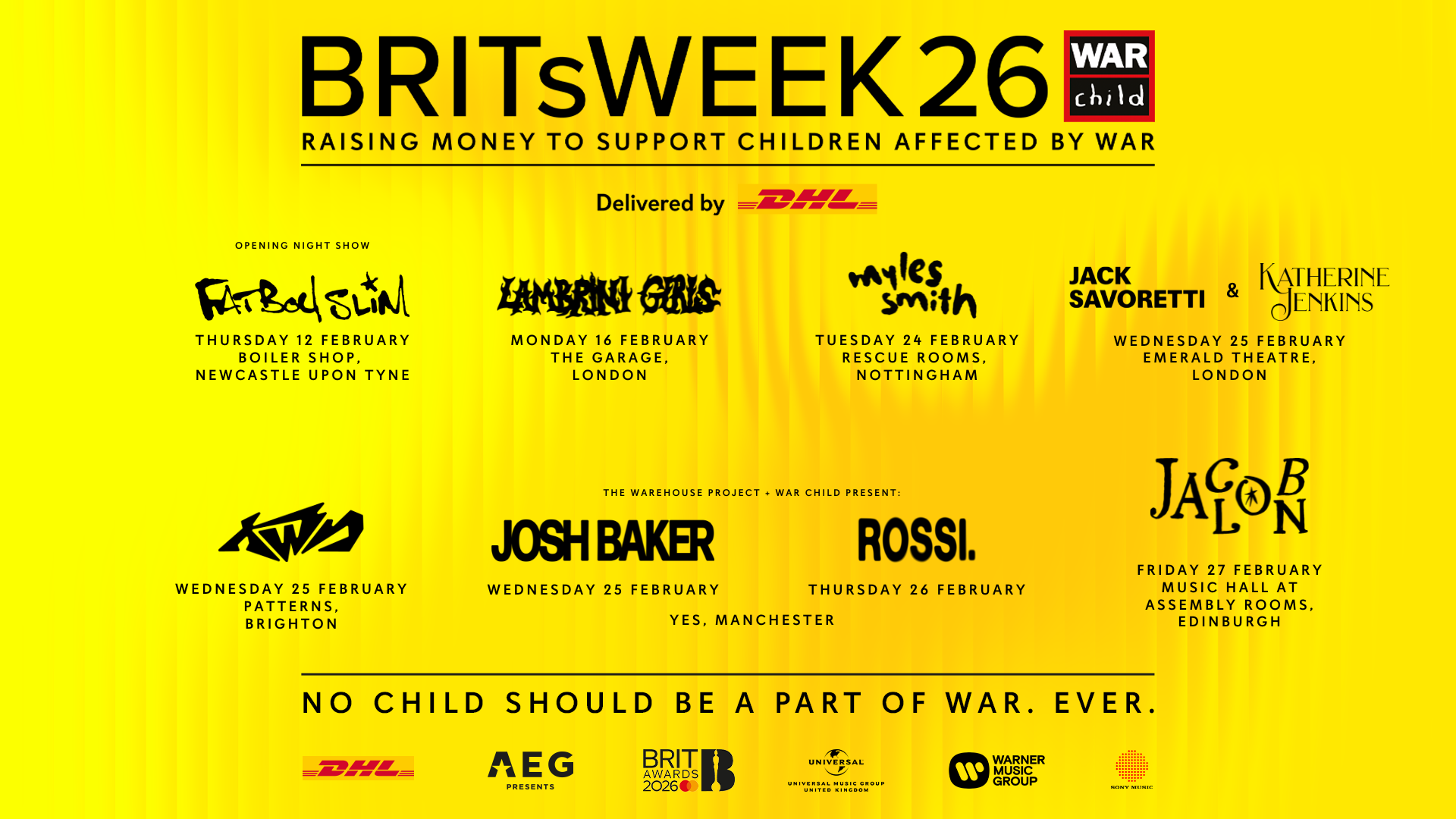Over the years, New York-based indie rock trio Sunflower Bean has written the book not only on music, but also on growing, transforming and surviving together. Now they’re back with Mortal Primetime – their most personal, vulnerable and entirely self-produced album to date. This album is not only a return, but also a manifesto that honours the past, embraces the present and looks boldly to the future. There is anger and hope in their songs.
1883 catches up with Sunflower Bean about their past and this new era – with transparency, passion and a bit of champagne.
So, Mortal Primetime is described as your most vulnerable and self-produced album to date. What motivated you to take full control of the production process this time around?
We’ve been really lucky over the years to work with some very cool and talented producers, and we’ve learned so much from those experiences. I don’t think we could’ve made this record without the foundation that came from collaborating with others in the past. But this time, we had a very strong idea of what we wanted the album to sound like. We’ve all been putting in the individual work, studying and experimenting to learn how to do things ourselves, so it felt like the right moment to take that leap.
A lot of the songs are deeply vulnerable, and producing them ourselves gave us a certain kind of protection—it allowed us to preserve the meanings and intentions behind them without compromise. For me personally, it was incredibly empowering to embrace our full creative agency. As a band, we’ve grown up together through this project, and producing this album ourselves felt like becoming the adults in the room. When you’re a younger artist, you often look for external validation and it feels safer to let others take the reins. But part of maturing was learning to take charge of our own vision and trust our instincts. That step felt essential for us this time around.
The lead single “Champagne Taste” exudes a sense of reckless determination. Can you delve into the inspiration behind this track and how it sets the tone for the rest of the album?
The phrase “Champagne Taste” has actually been with us for a long time—it was the name we used for our very first shows. Back then, there was this trend among Brooklyn bands to perform under fake names, and we wanted our debut as Sunflower Bean to feel really special. So we played two warm-up shows under the name “Champagne Taste” just to get the experience of performing live. As the band evolved, “Champagne Taste” sort of became our alter ego—an identity we used when playing small DIY shows or testing out new material. It represented this harder, rawer side of us.
When we wrote the actual song, it was a way to channel the frustration we were feeling—both personally and with the band—and to reclaim that alter ego energy, turning it into a kind of power anthem. It’s about embracing that side of yourself that breaks through whatever struggles you’re facing. Starting the album with that song was intentional—it connects with the energy of the EP we had released a few months prior, which was very hard rock. “Champagne Taste” continues that conversation, then the album opens up into the wider range of tones we were exploring.
Also, after facing personal challenges and pursuing individual projects, how did reconvening in Los Angeles influence the creative direction of Mortal Primetime?
It was really difficult for us to step away from the band. We had been working on it together for ten years, and even though we had reached a point where we truly needed that time apart, making the decision to pause was still really hard. But going through that process—taking the time, going through that hard period—was incredibly important for all of us. We grew a lot as individuals and became stronger. We became more comfortable in ourselves and more ready to come back to this project with clarity and intention. So when we finally came together again, it was rejuvenating. It felt like we had cleared our minds, expanded our perspectives, and were really ready to work again.
That sense of renewal really shaped the direction of the album. We were more functional, more cohesive as a group. That time apart also gave us perspective on what we had. When you’re so used to something, the truly magical aspects of it can start to feel normal—you take them for granted. But with space, we could see that what we’d built together was something beautiful, even rare. And that helped us value it so much more. I think that kind of reunion, after personal growth and space, brings a certain magic with it. It inspired the creative process in unexpected ways, and the energy of that reconnection is embedded in the record.
So definitely, also the track “Nothing Romantic” touches on themes of isolation and self-reflection. How do you approach writing songs that are deeply personal yet universally relatable?
I think that the more you write songs—hopefully—you get better at it, and it becomes a kind of way to interact with the world, with reality, and with your own emotions. At a certain point, songwriting becomes one of the tools in your emotional toolbox, a survival mechanism of sorts. So when it came to this record, especially with songs like “Nothing Romantic” that feel extremely personal, it wasn’t like we set out to make a deeply intimate album.
What we did set out to do was connect with people—we knew what we wanted it to sound like, we knew the values we wanted it to hold—but we didn’t know exactly where it would take us until we were in the process. In that way, the songs are almost like our lives unfolding in real time. There’s no blueprint; it’s just us documenting and expressing what matters to us as we experience it. We’re not filtering or calculating it too much—it’s about using music as a vessel for emotional truth, and that truth, even when specific to us, often ends up being universal in ways we never expect.
I also saw that you’ve mentioned that this album is about choosing the present as our prime. So how has this perspective shaped your approach to both music and life at the same time?
Yeah, I think it really speaks to the idea behind the word “mortal” in Mortal Primetime—acknowledging that things are fragile, that life isn’t permanent. You can’t always count on safety or stability. Things are going to happen, no matter what, so the best thing we can do is find strength in the moment we’re in. It’s about having the courage to do what you want to do now, instead of letting fear paralyze you or make you wait for a “better” time. Embracing the present becomes an act of joy and defiance—almost radical in its own way. And I think that’s reflected not just in the lyrics but in how we made the record, too. It’s about being fully present, about letting that sense of urgency and clarity guide you. I guess what I was going to say, too, is that the title Mortal Primetime kind of reminds you that part of what makes life beautiful is that it is finite. That awareness—that this is it, this is your moment—is what gives life, and by extension this record, its energy and meaning.
Also, with influences ranging from glam rock to alternative and psychedelic sounds, how did you blend these genres to create the unique soundscape of Mortal Primetime?
I feel like it’s just who we are—for better or for worse. The songs that ended up on the record were chosen very intentionally from a larger pool; we recorded around 14 or 15 songs in total. Some of the others will be included on the bonus disc that comes with the deluxe version of the album and will eventually be on Spotify. But the ones we selected for Mortal Primetime were the tracks that best told the story we wanted to tell. Interestingly, the overall tone turned out to be a little more sombre than we initially expected. We even had a moment of, “Oh no, is this going to be a problem?” But as Nick said, we’ve always been very open about the influences and references we love, and we approached each song based on what it needed.
If a track like “Sunshine” leaned into shoegaze, we went all the way with it—because our goal is to make each song feel real, both to us and to listeners. We don’t want to force a song into what we think we’re “supposed” to sound like. Instead, we see ourselves more as facilitators of the process. Compared to our third record, we knew we wanted this one to feel more tangible. So we made sure to record all of the songs using the same group of instruments, in the same place, which created an inherent sense of cohesion. That helped the varied genres and influences make sense within the sonic world of the album. It was a fearless mix, but one that felt very natural to us.

Also, the song “There’s a Part I Can’t Get Back” is notably direct and intentional. What was the writing process like for this track, and what message do you hope listeners take away from it?
I actually wrote that song a few years before it ended up on this record. At the time, I went into the studio with just Olive, and the two of us started working it out because it felt like something I really needed to say. Honestly, I didn’t even think it was going to be released—it just felt like a deeply personal song that might not have a place. But when we started sorting through the collection of tracks that could potentially make it onto Mortal Primetime, I knew it had all the qualities we felt were essential. It was guitar-based, it had a strong emotional core, and it was something the whole band could really sink their teeth into. Nick played a huge role in bringing out the beauty in the guitar work, which made it feel like the song truly belonged. Before the three of us got our hands on it together, I still wasn’t entirely sure.
Thematically, I really wanted to flip the idea on its head that everything in life is supposed to tie up neatly—that we’re supposed to forgive and forget, or find closure in some pretty, polished way. But that’s not always reality. A lot of people carry things they can’t forgive—experiences they bury deep down, things they don’t want to think or talk about. I felt those emotions deserved a song that validated them. I’m not saying that’s a place where people should stay forever, or that it’s good or bad—but it is real. And sometimes giving those feelings space in a song can help make sense of them. That’s what I was trying to do: to lay out something honest, something that I—and probably many others—have felt, and let it exist on its own terms.
Having performed at major festivals like Glastonbury and Lollapalooza, how do you envision translating the themes of Mortal Primetime to your live performances?
I think it should be pretty easy, honestly. We’ve already started doing it a little bit, and a big part of that is because much of the record was recorded with just the three of us in a room, playing together. At our core, we’ve always been a live rock band, and that’s something we really value. We’ve been playing together for over ten years, so we’ve developed a lot of chemistry as musicians. Getting the live shows together has never been too complicated for us—it’s something that comes naturally. I think we also really rely on our humanity and passion when performing.
The best thing we can do on stage is to give it everything we have—put as much of ourselves into it as we can—because that’s what we have to offer. We’re not rich, we don’t have a massive production budget, but we do have each other and this connection that we bring to every performance. We want to show people that they can have a band too, that they have the right to make music, to perform it, to be a part of something real. That’s very much part of our ethos. Like Nick said, it’s about what we’re willing to put on the line—our chemistry, our energy, our commitment—and that’s what makes the shows the most special and exciting thing we can share with others.
I also saw that in a recent interview you discussed the impact of AI on music. What are your thoughts on the role of technology in the future of music creation and consumption?
I think everything is going to depend on how much we, as a society, continue to value human thought. If we collectively decide that what humans create—their perspective, their imperfections, their stories—is still important, and we keep creating space for that and investing in it, then that’s the artistic route I hope we take. From my experience, when I’ve used AI in proximity to music, not necessarily for creating music, but around it, it has this tendency to show you what you don’t have. Because AI can perfect a form. It’s built to do that.
But if all we cared about was perfection, then sure, we’d all be chasing only that. Yet art has never been about perfection. Art is about flaws, about serendipity, about the unpredictable, messy, beautiful parts of being alive. That’s what makes it powerful. AI, of course, is a massive topic—it’s one of the biggest technological shifts of our lifetime, if not the biggest. And honestly, I’m sure that 15 or 20 years from now, we’ll look back on what artists are saying today and it might feel quaint. But my hope is that we’re still around to witness it. It’s definitely wild how fast it’s evolving, and I think it’s going to keep pushing us to question what we value most in creativity.
And lastly, looking ahead, what are your aspirations for Sunflower Bean and how do you see your music evolving in the coming years?
I think it’s kind of impossible to fully see into the future, but I do believe we’ll probably be a band forever. I can safely say we’ll still be playing shows ten years from now. As for the music itself, I hope we get to continue making records for as long as we can. We’ve built this beautiful legacy that we care deeply about, and I just want us to keep growing it. All of us are evolving—Olive has her own band, and Nick and I love writing for other artists as well.
There’s so much on the horizon, creatively and personally. But no matter how much we each grow as individuals, I think people will always be able to return to this world we’ve created together with Sunflower Bean. That world exists as something real, something independent of time. My hope is that with the passing of time, the timeless aspects of our work will only become more visible and meaningful.
Mortal Primetime is out now.
Interview Alper Kurtel





